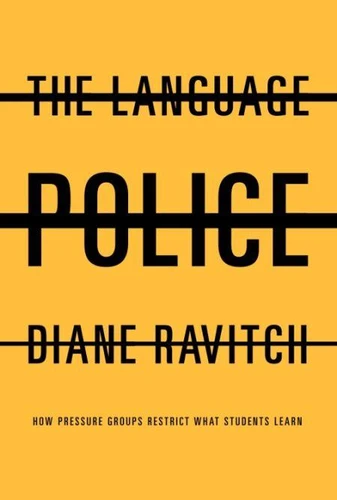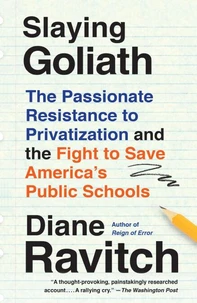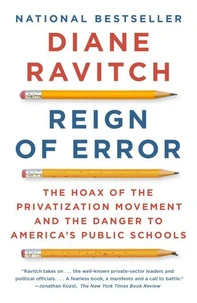The Language Police. How Pressure Groups Restrict What Students Learn
Par :Formats :
Disponible dans votre compte client Decitre ou Furet du Nord dès validation de votre commande. Le format ePub protégé est :
- Compatible avec une lecture sur My Vivlio (smartphone, tablette, ordinateur)
- Compatible avec une lecture sur liseuses Vivlio
- Pour les liseuses autres que Vivlio, vous devez utiliser le logiciel Adobe Digital Edition. Non compatible avec la lecture sur les liseuses Kindle, Remarkable et Sony
- Non compatible avec un achat hors France métropolitaine
 , qui est-ce ?
, qui est-ce ?Notre partenaire de plateforme de lecture numérique où vous retrouverez l'ensemble de vos ebooks gratuitement
Pour en savoir plus sur nos ebooks, consultez notre aide en ligne ici
- Nombre de pages288
- FormatePub
- ISBN978-0-307-42885-1
- EAN9780307428851
- Date de parution18/12/2007
- Protection num.Adobe DRM
- Taille689 Ko
- Infos supplémentairesepub
- ÉditeurVintage
Résumé
If you're an actress or a coed just trying to do a man-size job, a yes-man who turns a deaf ear to some sob sister, an heiress aboard her yacht, or a bookworm enjoying a boy's night out, Diane Ravitch's internationally acclaimed The Language Police has bad news for you: Erase those words from your vocabulary!Textbook publishers and state education agencies have sought to root out racist, sexist, and elitist language in classroom and library materials.
But according to Diane Ravitch, a leading historian of education, what began with the best of intentions has veered toward bizarre extremes. At a time when we celebrate and encourage diversity, young readers are fed bowdlerized texts, devoid of the references that give these works their meaning and vitality. With forceful arguments and sensible solutions for rescuing American education from the pressure groups that have made classrooms bland and uninspiring, The Language Police offers a powerful corrective to a cultural scandal.
But according to Diane Ravitch, a leading historian of education, what began with the best of intentions has veered toward bizarre extremes. At a time when we celebrate and encourage diversity, young readers are fed bowdlerized texts, devoid of the references that give these works their meaning and vitality. With forceful arguments and sensible solutions for rescuing American education from the pressure groups that have made classrooms bland and uninspiring, The Language Police offers a powerful corrective to a cultural scandal.
If you're an actress or a coed just trying to do a man-size job, a yes-man who turns a deaf ear to some sob sister, an heiress aboard her yacht, or a bookworm enjoying a boy's night out, Diane Ravitch's internationally acclaimed The Language Police has bad news for you: Erase those words from your vocabulary!Textbook publishers and state education agencies have sought to root out racist, sexist, and elitist language in classroom and library materials.
But according to Diane Ravitch, a leading historian of education, what began with the best of intentions has veered toward bizarre extremes. At a time when we celebrate and encourage diversity, young readers are fed bowdlerized texts, devoid of the references that give these works their meaning and vitality. With forceful arguments and sensible solutions for rescuing American education from the pressure groups that have made classrooms bland and uninspiring, The Language Police offers a powerful corrective to a cultural scandal.
But according to Diane Ravitch, a leading historian of education, what began with the best of intentions has veered toward bizarre extremes. At a time when we celebrate and encourage diversity, young readers are fed bowdlerized texts, devoid of the references that give these works their meaning and vitality. With forceful arguments and sensible solutions for rescuing American education from the pressure groups that have made classrooms bland and uninspiring, The Language Police offers a powerful corrective to a cultural scandal.








